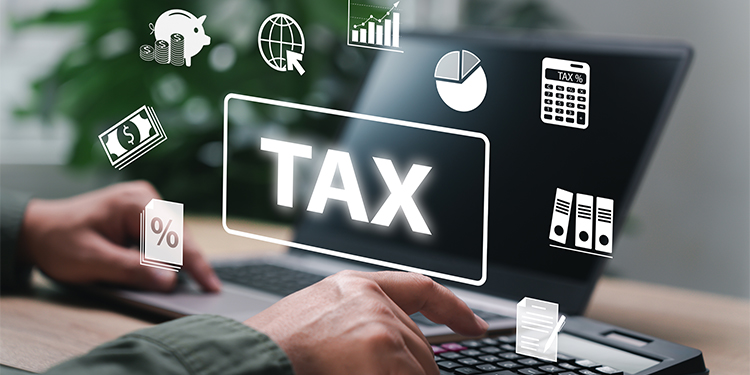
Tax Strategies for Selling a Business
It’s bittersweet to sell your business. You’re happy to move on to the next stage of your career, but will miss the involvement in the company you’ve built over the years.
But don’t forget about taxes when selling your business. Did you know that while you can’t avoid capital gains tax, which is the tax on profit you get when selling a business asset or stock, you can reduce it in several ways?
Without proper tax planning, there’s a risk that a large amount of cash will slip through your fingers.
Below are some tax considerations to keep in mind when selling a business. Remember, while you may be focused on the sales price, taking proactive tax planning steps as you create your exit strategy is just as important.
Types of Business Sales and Their Tax Implications
The tax implications when selling a C-corporation are not the same as selling a sole proprietorship—just as an asset sale differs from a stock sale.
The following are some common types of business sales and their tax implications.
Asset Sale vs. Stock Sale
A business acquisition can be structured in two primary ways: as an asset sale or a stock sale.
Most business sales, especially for small and medium-sized businesses, are asset sales.
- Asset sale: An asset sale is a type of business acquisition where the buyer purchases the underlying assets of the business and the sales price is based on the value of the individual assets.
- Stock sale: A stock sale is a type of business purchase where the seller gives the buyer shares in the business, and the buyer assumes immediate ownership.
Tax Implications of Asset Sale vs Stock Sale
The tax implications when selling a business depend on the type of sale (asset or stock) and how a business is structured (C-corp or a pass-through entity).
For clarity, pass-through entities are companies that don’t pay income or capital gains tax, but transfer or pass the tax obligation to their owners who pay tax on their tax return. Pass-through entities include S-corps, partnerships, LLCs, and sole proprietorships.
- Asset sale: The owners of a pass-through entity in an asset sale transaction pay tax on their share of the profits. Profits are calculated as the allocated sales price for each asset, less the owner’s basis in the asset.
For asset sales of C-corps, taxation takes place at two levels: the company level and the shareholder level.
First, the C-corp pays corporate tax on the gain from the asset sale.
Then, shareholders pay personal income tax on their share of the gain once they receive distributions via dividends.
On the buyer’s side, since an asset sale allows for a step-up in the tax basis of the assets purchased to their fair market value, buyers can take advantage of higher asset values and increased depreciation to lower their tax bills.
And the seller may need to recapture depreciation on the assets sold, which is taxed at ordinary income rates.
- Stock sale: In stock sales, the legal structure of the business does not matter. Sellers typically only have to contend with the capital gains tax. And buyers can’t take advantage of the step up in tax basis.
Capital Gains Tax When Selling a Business
A capital gain is an increase in a capital asset's value that’s realized when the asset is sold.
If a business buys real estate for $500,000 and sells it later for $750,000, the capital gain is $250,000. The capital gains tax will be due on the $250,000 profit.
The capital gains tax rate can either be long-term or short-term.
- Short Term Capital Gains Tax
The short-term capital gains tax rate applies to assets held for less than one year, and the applicable tax rate is your ordinary income rate. - Long Term Capital Gains Tax
On the flip side, the long-term capital gains tax rate applies to assets held for more than one year, and the applicable tax rate can either be 0%, 15%, or 20%, depending on income.
Since the marginal ordinary income rate can be as high as 37%, short-term capital gains are higher than long-term capital gains. This means that holding on to the business (and its assets) for at least one year before disposing of it can have significant tax savings.
Ordinary Income Tax When Selling a Business
As we’ve seen, selling a business asset held less than one year triggers ordinary income tax rates. Inventory and accounts receivables are also taxed at ordinary income rates because they aren’t considered capital assets. They are operating assets.
A higher ordinary income tax rate can arise because a seller has allocated a disproportionately higher amount to inventory and accounts receivable.
To minimize ordinary income tax, a seller should try to allocate much of the allocation price to fixed assets and other intangible assets, like goodwill, because these are subject to capital gains tax, which is often lower than ordinary income tax.
Also, sellers may want to do an installment sale to spread out the payment of the purchase price over time. A lump-sum payment can bump sellers into a higher tax bracket. By receiving payments over time, sellers can reduce their tax liability because of the lower annual taxable income.
Other Tax Mitigation Strategies When Selling a Business
Another tax mitigation strategy is to put the proceeds of a business sale in a private foundation, a donor-advised fund, or in a charitable trust.
To take advantage of some of these philanthropic strategies, timing is usually key. Many times, you need to set up structures before the sale of your business.
Other tax mitigation strategies the IRS lets taxpayers take advantage of include capital gains exclusion and rollovers. For example, did you know that some small business owners can exclude at least 50% of the gain they realize on the sale of qualified small business stocks (QSBS)?
And a seller can postpone paying the capital gains tax of a QSBS sale into another QSBS if it is done within 60 days of the sale.
State and Local Tax Considerations
States and local governments have different tax requirements that sellers need to consider in a sales transaction. These include state income taxes, which may apply to capital gains from the sale, and sales taxes on tangible assets being transferred. Sellers should also be aware of potential transfer taxes, and local taxes specific to certain jurisdictions.
Additionally, if the business operates across state lines, sellers need to consider tax obligations in each relevant state.
Involving Professionals
Selling a business is a decision of a lifetime. It can be thrilling to finally cash out on what you’ve built over the years. Remember, however, that it is not about how much you sell for, but how much you keep.
And as a buyer, you don’t want to overpay.
Navigating the tax implications of selling a business can be daunting. That’s why hiring experienced professionals to walk you through the entire process can put your mind at ease. When assembling your team of advisors to help you sell your business, an accountant or CPA can provide financial and tax advice throughout the process. A business broker will also help you prepare your business for sale, including preparing financials and tax strategies. Search the BizQuest Broker Directory to find a qualified professional to help guide you through the process of selling your business.





